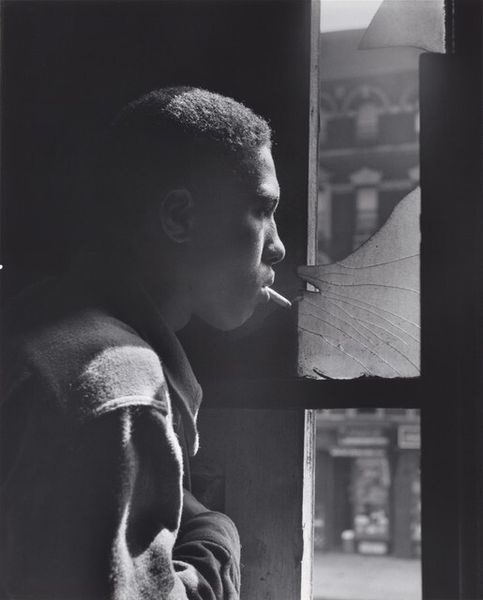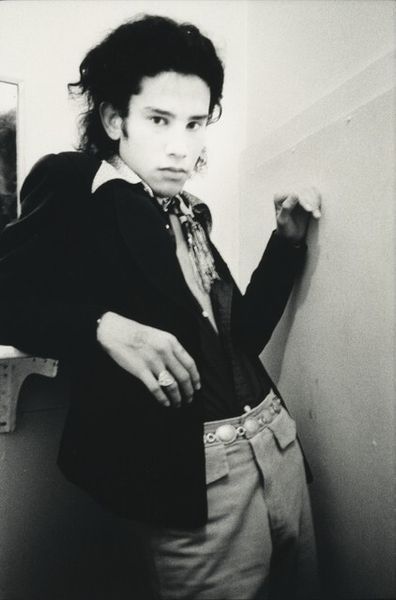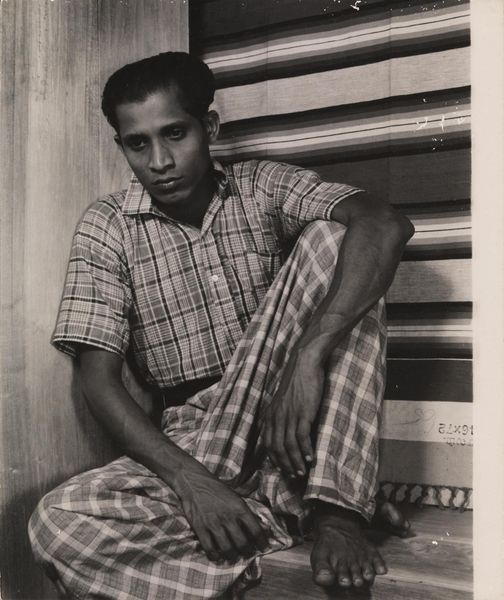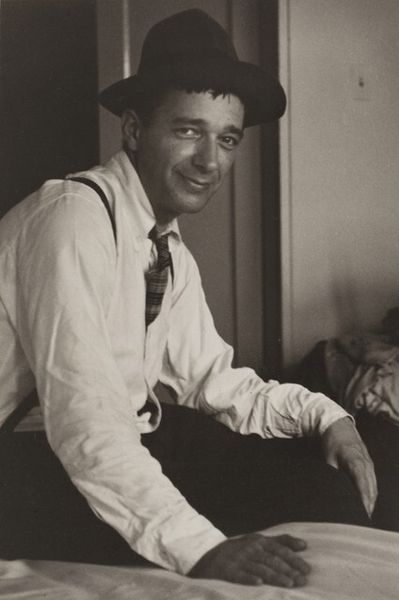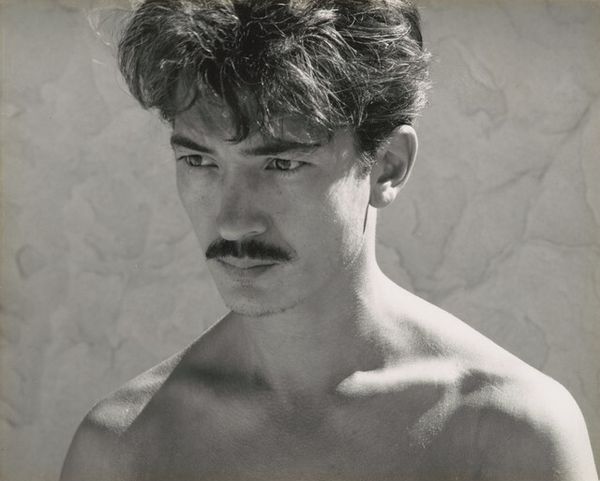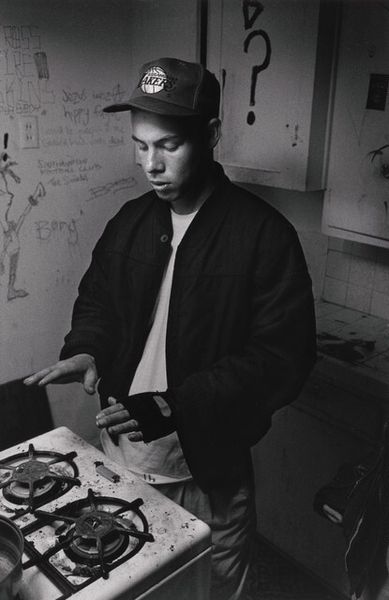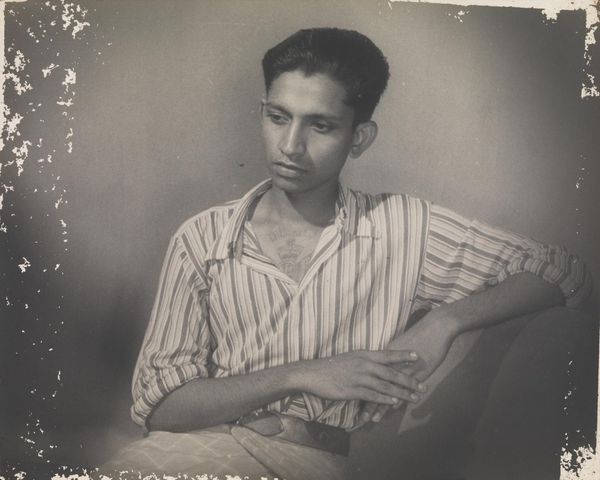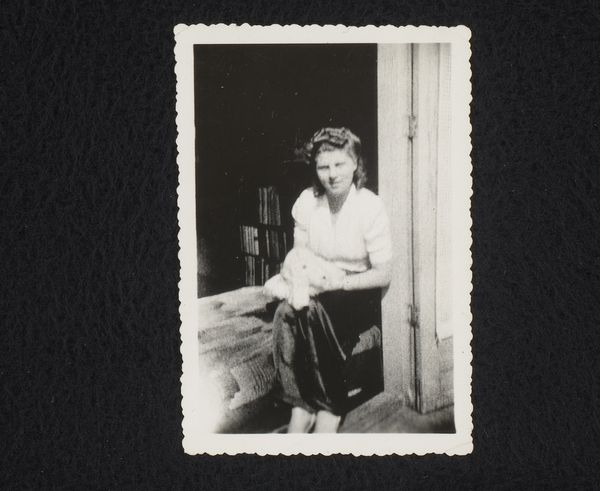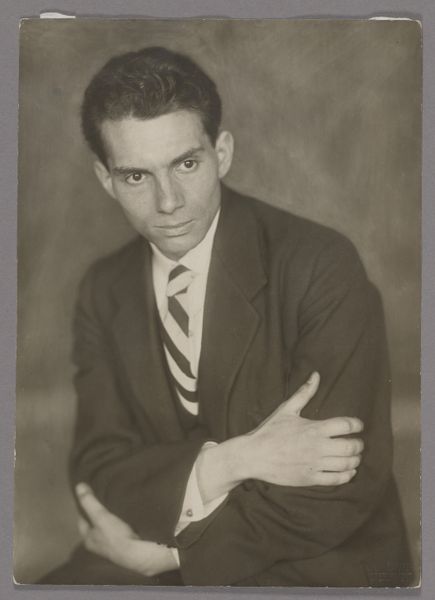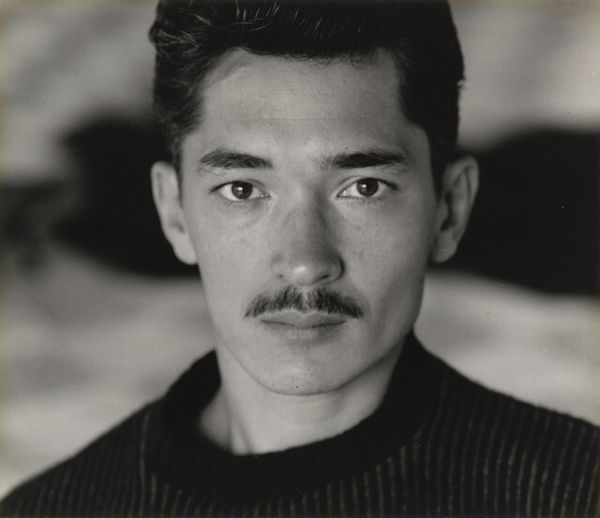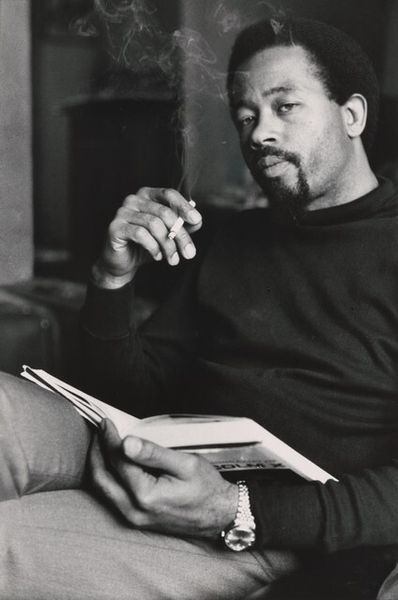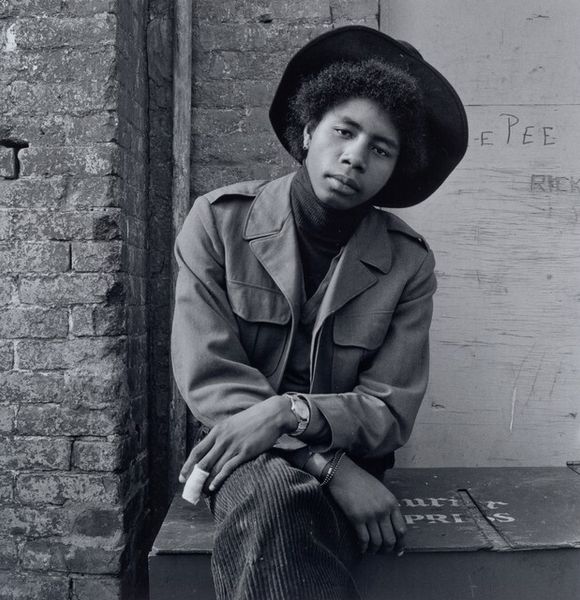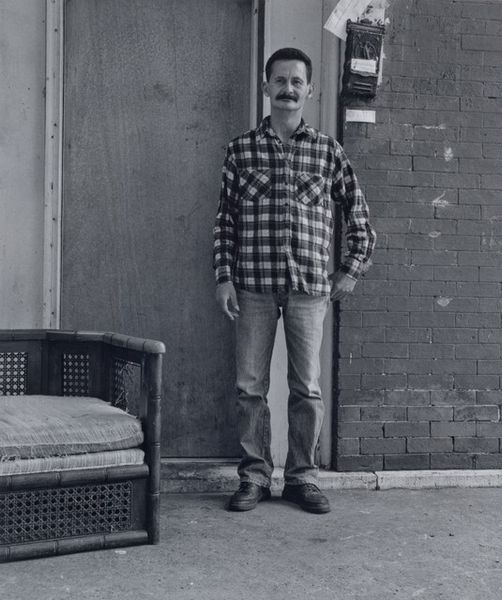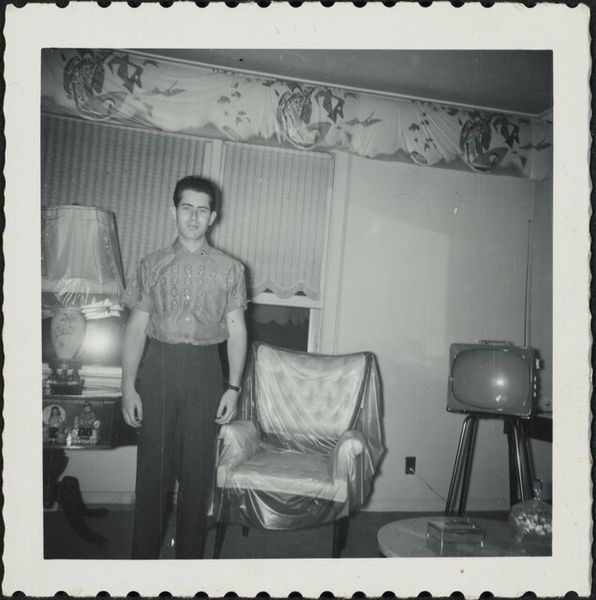
photography
#
portrait
#
self-portrait
#
black and white photography
#
outdoor photograph
#
photography
#
historical photography
#
black and white
#
monochrome photography
#
modernism
Dimensions: image: 9.3 × 11.9 cm (3 11/16 × 4 11/16 in.) mount: 25.4 × 18.9 cm (10 × 7 7/16 in.)
Copyright: National Gallery of Art: CC0 1.0
Curator: Oh, this one feels incredibly intimate. It's Minor White's "William LaRue, Carmel Highlands, California," taken in 1959. He has a whole series of portraits like this. Editor: There’s something instantly striking about the high contrast in the black and white. It makes me think about darkroom processes, and all the layers of human touch involved in crafting an image like this in the pre-digital age. Curator: Exactly! It is the tangible touch that’s so moving. White used photography as a way of exploring inner states—his own and those of his subjects. There is an amazing degree of craft here as the textures come through in tactile detail from the coarse wool sweater to the skeletal branches that look almost like veins in the foreground. Editor: Those stark branches could stand for any number of things... loss, or resilience... they're just there, existing beside him. Speaking of his sweater—its pattern is so visually interesting and almost feels mass-produced in a way. It adds an unexpected element to what seems like a very carefully constructed composition. Were those commercially manufactured back then? It might inform how "Carmel Highlands, California" itself became associated with notions of West Coast modernism... Curator: Well, in California at that time you definitely would have had mass manufactured options available for things like sweaters. I see it more as framing and maybe even a way for the subject to project self-assurance. Look how his pose almost dares the viewer to project upon him and decide. Editor: Hmmm. And his hands around his neck seem so deliberate, even slightly performative. Is it comfort or constriction? I guess that tension is exactly where the photo lives and breathes. Curator: Yes, maybe both. The man’s identity, frozen in that captured moment... is ultimately still protected. I admire Minor White's photographs precisely for that quality, to respect that privacy. Editor: Ultimately, this photograph gives off a strong sense of a particular time. The tangible materiality reminds us that pictures of people, even carefully constructed ones, still reveal truths through processes and places.
Comments
No comments
Be the first to comment and join the conversation on the ultimate creative platform.
